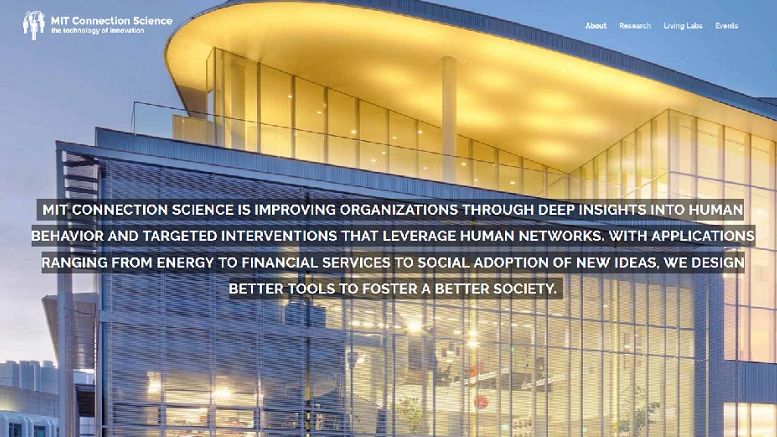
MIT Adopts Ripple Validator to Advance Consensus and Blockchain Research
Massachusetts Institute of Technology’s Connection Science, a research initiative that applies data and analytics to build better societies, today announced that it is the first academic institution in North America to participate in a global Byzantine consensus database.
To advance the frontier of blockchain research, MIT is running a validator for the RippleConsensus Ledger, a distributed ledger that settles global transactions in real-time and is the foundational ledger for the digital asset XRP. Ripple validators are servers that confirm transactions on the network.
"In this new experiment with Ripple, we are taking MIT's experiential research approach to the blockchain, and we anticipate this collaboration will provide us new opportunities to test and deploy data applications and research," said MIT Professor Alex "Sandy" Pentland.
"We’re pleased that the Ripple team has fostered a substantive dialog with us about the future of finance through the decentralization of digital currencies and value."
Led by Prof. Pentland and Managing Director David Shrier, MIT Connection Science is developing novel blockchain, financial services, and enterprise data projects and initiatives, including open-source code projects under the Internet Trust Consortium. In order to equip executives and entrepreneurs to navigate financial technology disruption, MIT Connection Science is also launching the "Future Commerce: fintech innovation" course online, in collaboration with online learning platform GetSmarter.
"We’re extremely excited for MIT to run a Ripple validator. Having a globally renowned institution like MIT contribute to the consensus process on Ripple fortifies the resiliency and security of the network. Beyond that, it’s incredible to have a partner we respect so much share the mission of enabling money to move like information does on the web today," said Stefan Thomas, Chief Technology Officer at Ripple.
Ripple validators are lightweight systems equivalent to running an email server. According to Ripple, the Ripple network has never lost or reversed a single transaction in three years of production. Ripple’s technology has been deployed through real-money pilots with 30 different banks around the world, and recently closed 20 million ledgers, in comparison to Bitcoin - which has closed about 400,000 blocks.
About MIT Connection Science
MIT Connection Science is a new research initiative at the Massachusetts Institute of Technology that applies data/analytics to build better societies, under MIT's new Institute for Data, Systems & Society.
More information is available at http://connection.mit.edu/ and http://IDSS.mit.edu/
About Ripple
Ripple provides global financial settlement solutions to ultimately enable the world to exchange value like it already exchanges information – giving rise to an Internet of Value (IoV). Ripple solutions lower the total cost of settlement by enabling banks to transact directly without correspondent banks and with real-time certainty, optionally using the digital asset XRP to further reduce liquidity costs. Banks around the world are partnering with Ripple to improve their cross-border payment offerings, and to join its growing, global network of financial institutions and market makers.
Ripple is a venture-backed startup with offices in San Francisco, New York, London and Sydney. As an industry advocate for the Internet of Value, Ripple sits on the Federal Reserve’s Faster Payments Task Force Steering Committee and co-chairs the W3C’s Web Payments Working Group.
Ripple: http://ripple.com/
Related News





